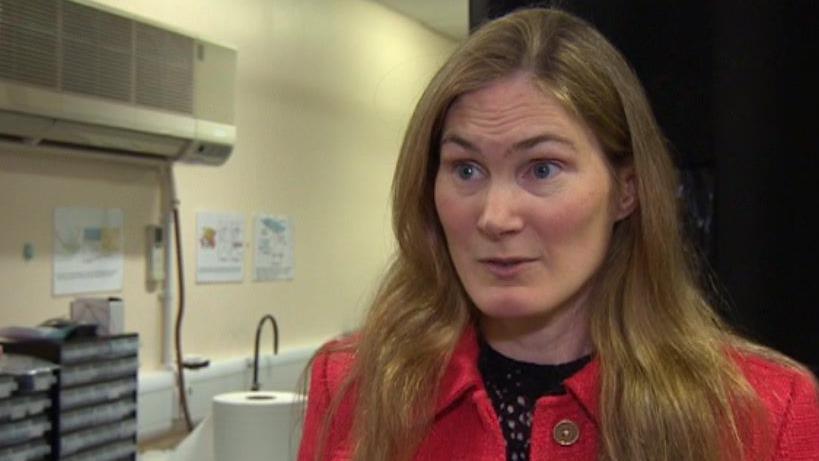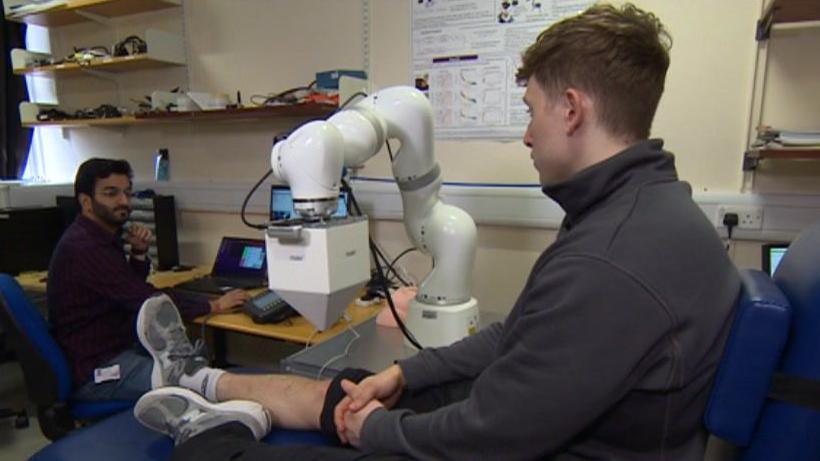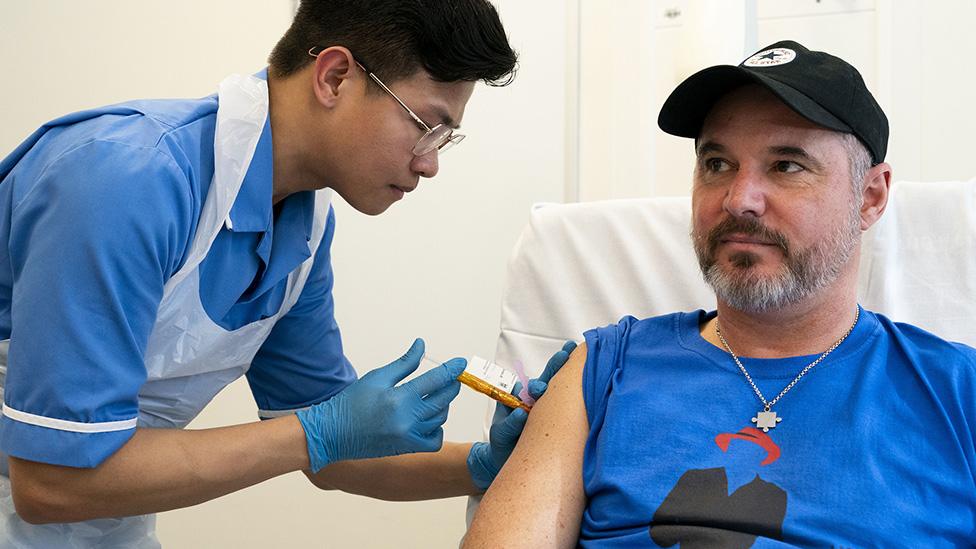Scientists invent new way to detect skin cancer

Prof Emma MacPherson says THz waves could accurately map the extent of any skin cancer
- Published
Scientists at the University of Warwick have created a new way to detect skin cancer.
Using so called Terahertz (THz) waves, with some early trials on patients already underway, the hope is to speed up surgery and help surgeons remove cancers while leaving as much healthy skin as possible.
THz waves fall between infrared (used in remote controls) and microwaves on the electromagnetic spectrum.
They can be used in scans to map the extent of tumours more accurately.
Scientists actually refer to the terahertz "gap" as it is a bit of the spectrum which we have a hard time actually generating and using the waves found there.
That has started to change in the last few years, and as we have learned to make THz waves we can start to find uses for them. That is what the research at Warwick is all about.
Safer low frequencies
Prof Emma MacPherson showed me round her lab and demonstrated how THz waves are now being used to detect skin cancer.
She explained THz waves were "a million times lower frequency than X-rays so it's really safe and it's really sensitive to subtle changes in water concentration".
In skin cancers, the amount of water in the skin is different when compared to the healthy skin around it.
In theory you could use a THz wave producing machine to map very accurately the extent of any skin cancer.
Which is why in her lab there is a student with his trousers rolled up having green dots stuck to his legs.
These show the area under investigation to a robot arm with a THz generator on the tip.
The robot then scans and maps out the extent of the cancer.

Trials at the University of Warwick use a THz wave producing machine to detect skin cancer
At the moment, a surgeon will draw on years of experience and eyeball the cancer to make a decision on how much to cut out. Surgery can take hours.
But if Professor MacPherson's THz trials work, doctors could instead scan the cancer first and know exactly where to cut.
It could potentially both speed things up and help preserve as much healthy skin as possible.
Early trials on patients have been carried out and more are planned for the summer.
As well as cancer, you the same approach could be used on skin disease like eczema, to analyse the skin and work out exactly the right course of treatment.
If all goes well, in five years any skin cancer patient might go for a THz scan just like a patient with a broken bone goes for an x-ray.
Follow BBC West Midlands on Facebook, external, X, external and Instagram, external. Send your story ideas to: newsonline.westmidlands@bbc.co.uk, external
Related topics
- Published27 April 2024

- Published26 April 2024

- Published16 April 2024
